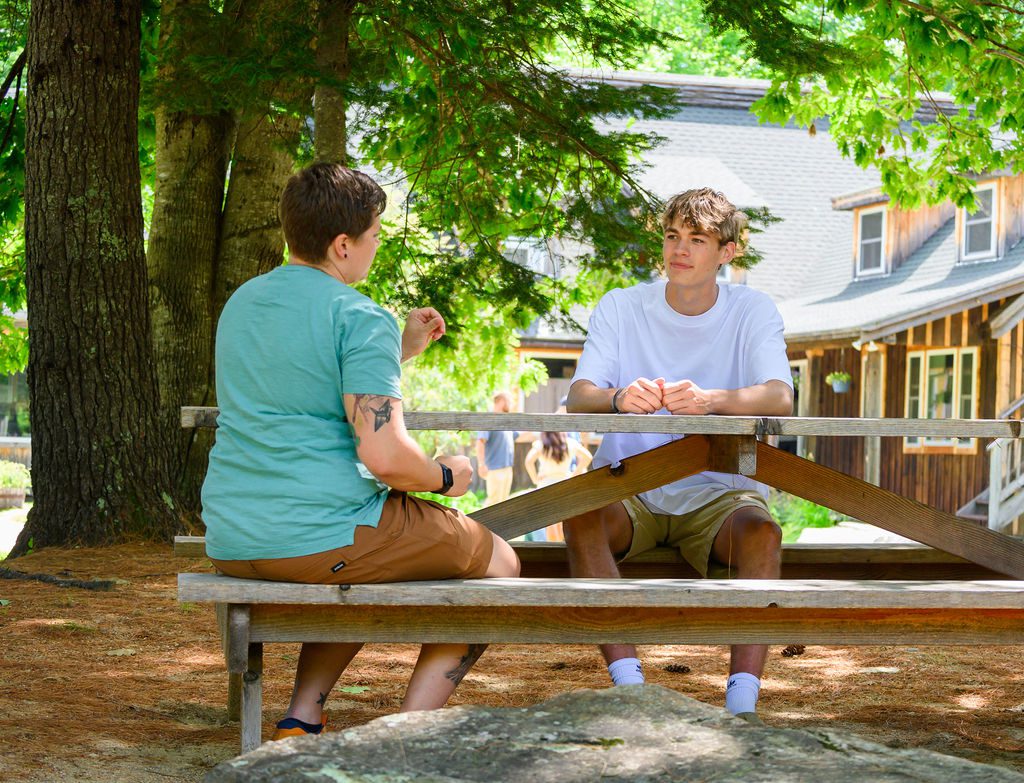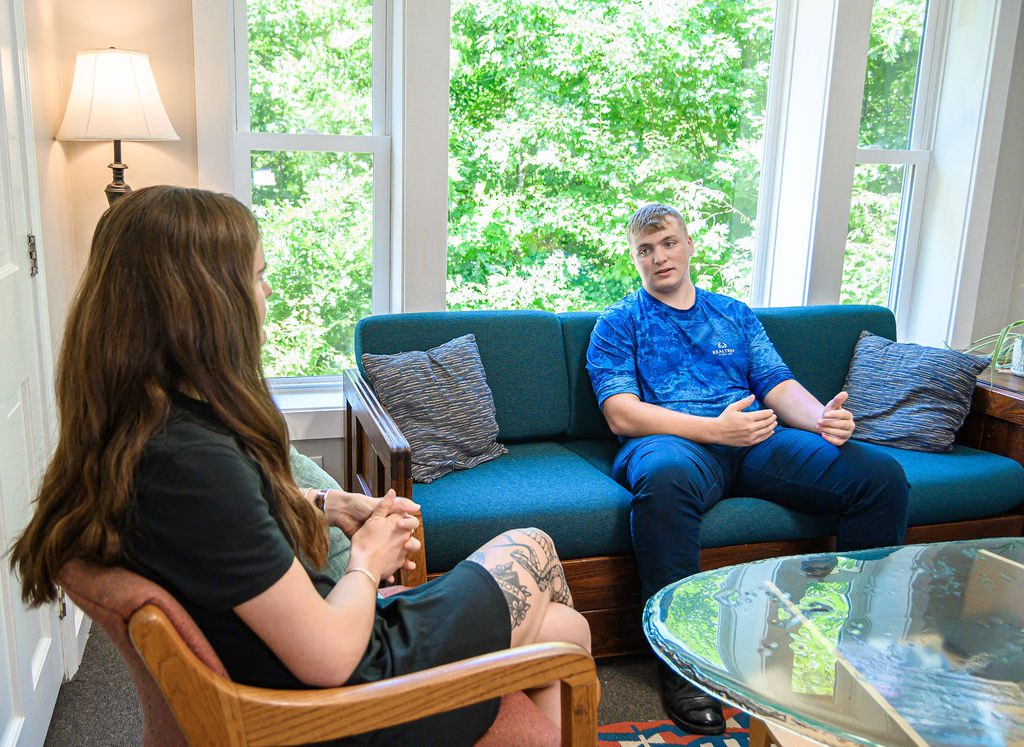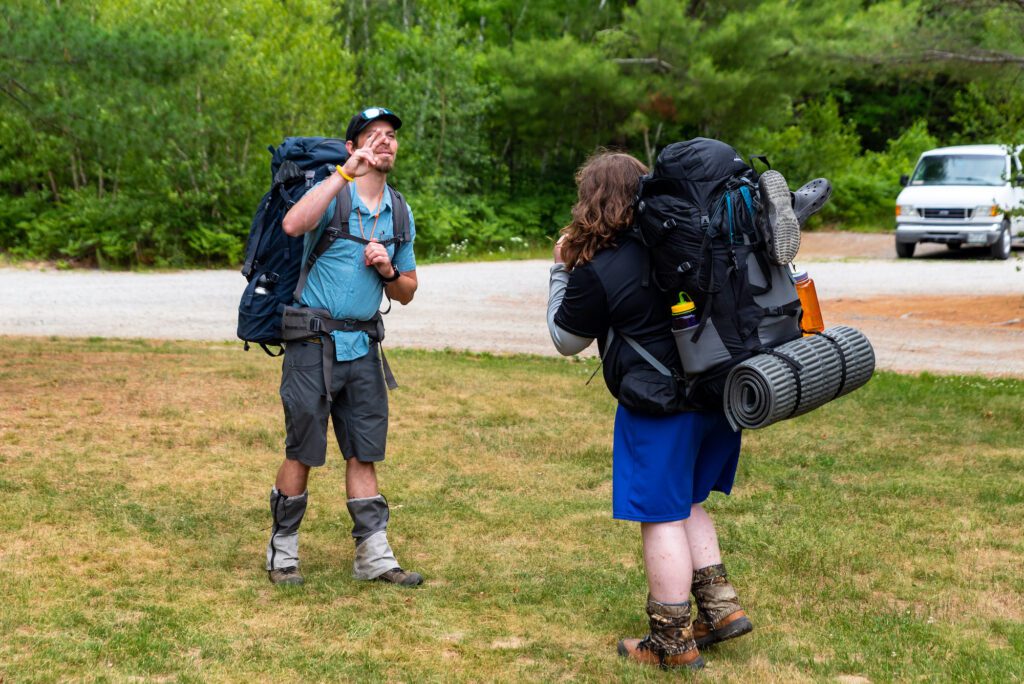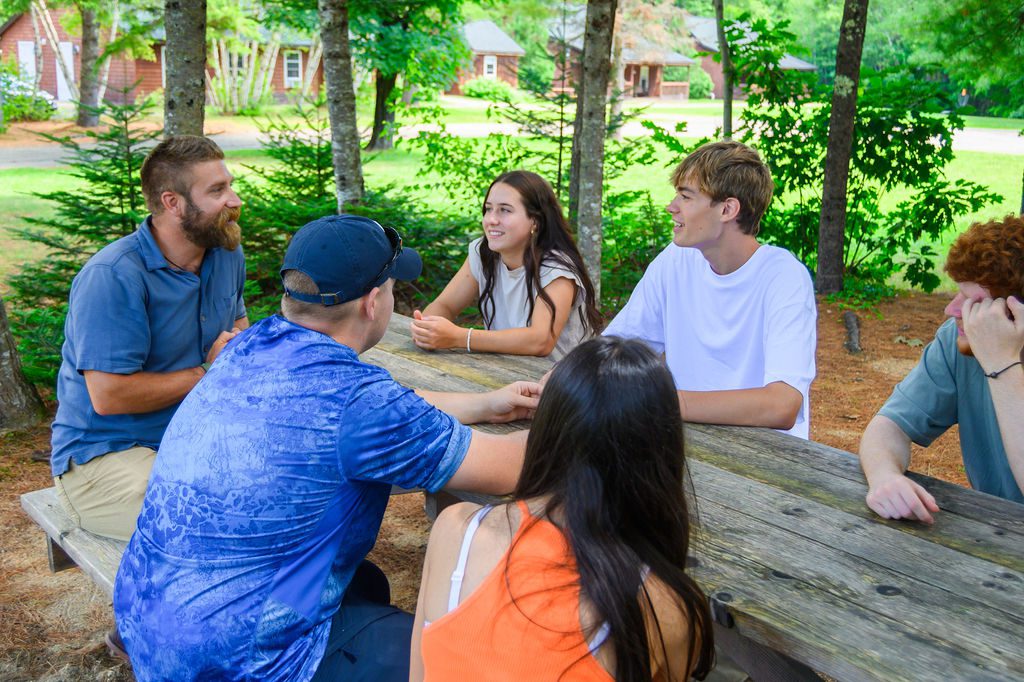Clinical Approach

Clinical Approach
The vast majority of students that come to Summit Achievement are struggling with anxiety and/or depression alongside learning challenges, ADHD, or secondary substance abuse. Many of our students have come to doubt their abilities, competency, and overall self-worth leading to self-destructive behaviors that impact their ability to function and engage with their world. At Summit, we focus on building rapport and a sense of connection to our community. This connection is the platform from which the therapeutic journey begins as students encounter and navigate the safe struggles inherent to expeditions, classroom, and community living. Through an intentional interplay of techniques from motivational interviewing, Cognitive-Behavioral Therapy, Dialectical-Behavioral Therapy, and family system theory, we offer a strengths-based approach to building new coping strategies, celebrating all emotions, and finding new ways to navigate old challenges.
Assessment
Many students come to us with some uncertainty around their clinical diagnoses. As we work to build rapport and help students adjust to the rhythms of life in our community, we will also be engaged in a rigorous assessment process. We begin with families and students completing several assessment devices at intake. Perhaps more importantly, a comprehensive understanding of the complex clinical picture is formulated by observing and interacting with students in our therapeutic milieu, on expeditions, and in the classroom. These observations and assessments are compiled within a structure supported by medication management, healthy diet, and regimented sleep. For many students, we may also recommend pursuing a comprehensive neuropsychological evaluation (See neuropsychological testing). Each component of this assessment process aids in the development of an individualized treatment plan and weekly therapeutic assignments.

Midway through the program, the therapist makes recommendations regarding the level of clinical support the student will need following discharge. Though these recommendations typically include the type of program or school, degree of structure, and other services that the student may require, parents are encouraged to work with an Educational Consultant who can help them identify specific schools, programs, or supports to meet the student’s needs.
Individual Therapy

Within Summit’s tight-knit campus community, students meet weekly with their primary therapist and have opportunities to interact with them frequently outside of sessions. Students collaborate with their therapist each week in the creation of therapeutic homework assignments called “Goal Work” geared towards targeted treatment goals. Drawing upon student’s experiences throughout the week in the classroom, milieu, and on wilderness expeditions, the therapist supports students in the development and strengthening of emotional awareness, healthy coping strategies, communication skills, social skills, and executive function tools. These skills create the foundation for students to address the myriad of issues that may have led them to seek treatment. Teams of no more than 8 students are guided in practicing new skills daily with the support of their peers and field staff. Students thrive within a structure that encourages the giving and receiving of feedback and pursuit of a healthy, balanced, and authentic self.
Substance Abuse Counseling
Some students have been involved in drug and alcohol use to the point that their use became a problem, impacting school performance, relationships with family, and, at times, resulting in contact with legal authorities. For Summit students, substance use is almost always a secondary issue to their anxiety and/or depression. For these students, Summit Achievement offers drug and alcohol education, strong recovery support, and opportunities to attend 12 step meetings in our local community and on-line. Counseling focuses on providing the student with a working knowledge of the symptoms, cause, effect, and healing of chemical dependency. Students explore the definition of addiction, triggers for drug and alcohol use, steps to recovery, and relapse prevention planning.
Clinical Supervision on Expedition
Approximately every three weeks the primary therapist accompanies students on expedition for a 24-hour period. Participating as part of the group on expeditions allows the therapist to interact with the students in a less formal setting that further develops the connection between each student and the therapist. This experience also affords the therapist an opportunity to observe each student’s functioning within the peer group, including demonstration of problem solving and social skills, communication patterns, and his or her role within the group. These observations are helpful to the therapist in providing the student with feedback during individual and group therapy sessions.

Family Therapy
Family therapy is a critical part of each student’s treatment and includes up to three in-person, face-to-face sessions with parents/guardians:
- In the first week, parents will have the opportunity to speak with the therapist about their concerns and hopes for their child. Whenever possible, parents will meet with the therapist in person on the day of enrollment. Alternatively, this meeting may take place via phone or video conference.
- In the second week, families begin participating in family therapy sessions via phone or video conference. These sessions start off with the therapist and parents/guardians only, providing an update on the student’s progress in the program, reviewing parent-coaching skills, and preparing for the student join. When the student joins, the therapist guides families through discussion of treatment goals, therapeutic homework assignments, intra- or inter- personal challenges, or family conflicts. Family sessions are vital opportunities for re-establishing or improving healthy communication within the family system and strengthening the parent/child relationship.
- Halfway through the program students are eligible for an off-campus, overnight visit. Visits are an important opportunity to practice new skills and demonstrate growth. Upon returning from visit, the primary therapist facilitates an in-person family session to process progress in the program and within the family system. Often, this is also the point in the program where aftercare recommendations are discussed.
- On the day the student graduates from the program, families meet for a final, in-person family session. This session typically celebrates growth and solidifies transition plans and future expectations.
The Parallel Process and the Summit Parenting Program
While the child is the primary client, we believe that a strong family component is an integral part of the overall treatment process and plays a significant role in the success of the child after leaving Summit Achievement. Our innovative Summit Achievement Parallel Process Curriculum was designed by the renowned author and parent coach Krissy Pozatek, MSW. Our leadership team and clinical team have been trained by Krissy Pozatek to help implement the curriculum and integrate the parallel process concepts into our program. Just as students move through six levels in our Achievement program, parents/guardians will move through their own six levels to grow alongside their child.
Upon admission, each family will receive a digital copy of our Summit Achievement Parallel Process Curriculum as well as a copy of the book, The Parallel Process by Krissy Pozatek, MSW. In addition, parents/guardians will be offered six sessions of parent coaching with Nick Faraldi, MSW, our Director of Family Support. Sessions are designed to reflect on parenting patterns and develop skills to help parents/guardians plan for visits and the child’s return home after treatment.
Group Counseling & Therapy
Group process sessions are facilitated by program guides or students in levels 5 or 6 every day of the week. Guided group discussion is used to:
- Resolve conflict
- Provide and receive feedback
- Share therapeutic assignments
- Evaluate progress

When a student has a problem, it is dealt with in the immediate context of and with help from the group. All the group members are affected and therefore have a stake in the resolution of the problem. This is a time for students to practice assertive communication, speak honestly and respectfully, listen to feedback, and recognize and share emotions. Whether offering or receiving feedback, this challenging process assists students in better understanding their interpersonal relationships and the impact their behavior and emotions have on others. It is through the repeated use of this group process that students develop the greatest insight into their own behavior.
In addition to the daily group processing sessions, there is one group therapy session per week facilitated by the primary therapist. This therapy session focuses on a variety of topics each week. It may focus on the dynamics of the group or a specific issue that several members of the group are struggling with, such as anger management, conflict resolution, negotiation skills, substance abuse, dealing with loss and grief, or other topics.
Medication Management
Summit Achievement’s Medical Director can provide an evaluation of psychotropic medication. In most cases, students taking psychotropic medication at the time of enrollment are maintained at the previously prescribed dosages. The medical and program staff are trained to administer medication to students and to recognize adverse or allergic reactions. Program policies do not allow any student to self-administer any medication. Summit’s physician, who is on site each Tuesday, reviews each student’s medication every 30-days. Should there be any recommendations or concerns regarding a student’s medication or dosage, the medical staff will contact the parents immediately. Summit’s Medical Director is available to collaborate by telephone with a student’s prescribing physician as needed.
Neuropsychological Testing
All students admitted to Summit Achievement are evaluated for depression, anxiety, and substance abuse. At times a more extensive evaluation may be recommended by the therapist or requested by parents or an educational consultant working with the family. In these instances, Summit Achievement can arrange for a full neuropsychological assessment, which includes a spectrum of psychological, personality, and academic testing administered by a licensed professional. While Summit Achievement does not provide this service on our campus, we work with experienced psychologists from around the country and can assist in making arrangements. Please speak with the Admissions Department or your child’s therapist at Summit for more information about this service.
Have Questions?
If you have any questions about the application process, please contact our our Admissions Director Shannon Palentchar through the Admissions Office by phone (207) 447-9450.